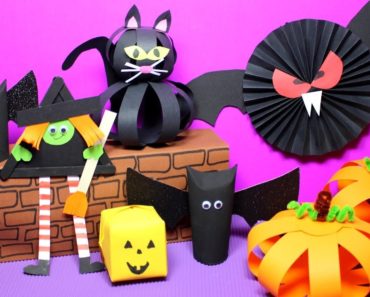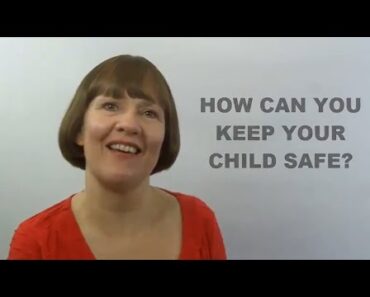Image: Shutterstock
Every child is different. They have varied personalities and dispositions. Some children are docile and obedient, while others can be mischievous and stubborn at times.
However, if a child shows repeated difficult behavior, such as disobeying rules, getting into fights, or throwing massive, and often, public tantrums, they can be quite a handful for their parents.
Managing children’s disruptive and difficult behavior can be frustrating and exhausting for parents. So how should you deal with difficult behavior in children? This post tells you the causes of difficult behavior in children and gives you some valuable tips to manage it.
Why Do Some Children Exhibit Difficult Behavior?
Some children may exhibit difficult or challenging behavior on account of several different factors. Here are a few (1) (2).
- Sometimes, difficult behavior can be a cry for attention. Children crave for their parents’ attention to feel safe and happy. If they don’t get enough attention, they may try different antics to ensure their parents are focused on them.
- Quite often, children lack the required capabilities to behave in an expected manner. They might find it challenging to handle emotions such as anger, fear, or anxiety and may respond by acting out.
- In some instances, the problematic behavior might be a response to changes in their environment and their effects on their psyche. These changes could be anything from the birth of a new baby to relocation or a change of school.
- If your young child does not follow your instructions, lack of focus or short memory might be a possible cause in a few instances.
- Children may react badly if they are exhausted, ill, or have not slept well.
- Hunger or improper diet can also be the cause of difficult behavior.
- Children need time and help to adjust to any change in their current situation or schedule. They may act out if they are unable to process the change.
- Excess screen time can be another factor responsible for difficult behavior in children.
Behavioral Traits Of Children With Difficult Behavior
Certain behavioral traits indicate that you might be dealing with a child exhibiting difficult behavior. These include (1)
1. Defiance
Children who exhibit difficult behavior may show complete defiance toward you and the people around them. They may refuse to comply with instructions or requests, however straightforward they might be. Simple requests such as sleeping on time and eating dinner before reaching for the dessert might fall on deaf ears or be disregarded.
2. Hurting others
Children with challenging or aggressive behavior might often hurt other people. They might not get along well with their peers and resort to kicking, biting, hitting, pinching, scratching, or shoving. The physical violence may be on account of anger, disagreement, or not getting their way.
3. Fussiness
Children with difficult behavior tend to be fussy. For instance, they may refuse to eat certain foods and show their displeasure by spitting out the food or throwing it. This fussiness may extend to other areas such as clothes. They might agree to wear only certain clothes and reject the others.
4. Extreme anger
Extreme anger is a common trait amongst children with difficult behavior. If things do not happen the way they want, such children may become extremely angry and violent. They might scream, cry, and throw things to get their way.
5. Tantrums
Frequent tantrums are common amongst children with difficult behavior. They might throw a tantrum to gain attention or to fulfill their demands. If you deny such children something, a huge emotional outburst is typically their weapon.
How To Deal With Difficult Behavior In Children?
Here are a few tips for dealing with children’s difficult behavior and bringing the aggressive behavior under control.
1. Remain calm
It is easy to lose your cool if your child frequently throws tantrums. However, if you show your frustration, the situation might escalate. Remain calm, keep your tone neutral, and be objective. Instead of ordering them to do something, offer a suggestion; for instance, instead of staying “Do this or do that,” use phrases such as “Could you please…” or “Why don’t you….”
You can also try to change the topic and speak about something you both like. Discussing the issue with your partner, friends, or close relatives can also help in relieving your anger (3) (2).
2. Prioritize the issues
A child with difficult behavior might exhibit multiple behavioral issues. However, arguing over everything can be exhausting. Therefore, prioritize the key issues that require your immediate intervention and deal with them first. The less critical issues can be pushed down the list (3).
3. Maintain consistency
Maintain consistency in how you respond to your child’s actions. If you have different responses to your child’s specific behavior on different days, the child may get confused and act out more. Ensure that all the caregivers and elders are on the same page while reacting to the behavior of your child (2).
4. Explain things
When you instruct your child to do something, explain the reason behind it. For instance, tell them why it is crucial to brush their teeth before bed. If they indulge in any bad behavior, explain why the action is wrong and how it impacts others (2).
5. Show appreciation for good behavior
Positive reinforcement can encourage good behavior. If your child does something good, offer them praise and encouragement. For instance, if they finish their food without a fuss, tell them, “Good job! You did well.” You can give them a smile, hug, or kiss to indicate your appreciation and love. Use this technique to encourage the behaviors you approve of (2) (3).
6. Reward them
In addition to praising the child, you can also give them a reward when they behave well. Reserve this for those moments when good behavior is highly essential. For instance, if they assure you of good behavior in class, and they do, reward them with their favorite food item or toy (2). The reward need not be monetary. You may offer them extra privileges, such as an additional 30 minutes of playtime (4).
7. Find ways to reduce problematic situations
After noticing difficult behavior in your child for some time, you will be able to anticipate when the tantrums and meltdowns generally occur. Identify the triggers, and take the necessary steps to avoid or reduce the occurrence of such situations. For instance, if they are particularly irritable during a particular time of the day, avoid taking them to a public place, such as a park, during this time (3).
8. Decide age-appropriate consequences
While you may give your child an opportunity to change their behavior, frequent bad behavior needs to be corrected using age-appropriate consequences. The consequence should be in line with the seriousness of the child’s actions. For instance, kicking someone requires stricter disciplinary action compared to shouting. For stronger impact, communicate the consequence immediately after the bad behavior (1).
A time-out is a good disciplinary technique that may give the child a chance to introspect and modify their actions. However, the time-out should be limited to a short duration. Taking away mobile, computer, or TV privileges is another technique that might help (1).
9. Be a role model
Children usually pick up on the things you do rather than the things you say. Therefore, if you want to improve your child’s behavior, lead by example. Your actions and speech should be in line with the behavior you expect from your child. For instance, if you do not want your child to scream or abuse, keep your tone mellow and avoid using swear words (1).
10. Avoid blames
Avoid blaming yourself or the child for the problematic behavior. In some cases, the behavior could be due to an underlying issue, and they might not be deliberately trying to hurt you or others. Hence, it is best not to take the behavior to heart (3).
11. Do not succumb to the child’s demands
Do not succumb to the wrong demands of your child. It will encourage difficult behavior. If your child realizes that you give in the moment they throw a tantrum, they will use it to get what they want. Stand your ground and do not give in. Taking them away from the location could help (4).
12. Encourage your child to convey their emotions
Young children may struggle to put their feelings and emotions into words. Teach them how to articulate their emotions by naming them. You can say things such as, “I know you are frustrated because you cannot watch TV right now.” This helps your child understand that what they feel is okay and gives them a verbal outlet to express their feelings (4).
13. Use appropriate behavior references
Appropriate behavior references can be used to reinforce positive behavior. For instance, you could say, “Hey Tom, it is nice of you to share your toys with Sam.” Or “I like how you hold my hand while crossing the road.” Seeing you acknowledging and appreciating the good behaviour can help your child practice it more often (5).
14. Determine activities that engage your child
Children who display difficult behaviors spend less time engrossed in other activities. However, the few activities they enjoy might be the key to minimizing the challenging behaviors. Find out the activities your child enjoys and increase the number of times these activities are done during the day. Schedule these engaging activities specifically when your child generally displays difficult behavior (5).
Managing your child’s difficult behavior can be challenging at times. However, once you decide on the solution, do not back down. If despite all your efforts, you feel overwhelmed, seek the help of your partner, family, or friends. Sometimes, an underlying condition can be the cause of problematic behavior in children. So, if you are struggling with your child’s behavior, consult a pediatrician.


































